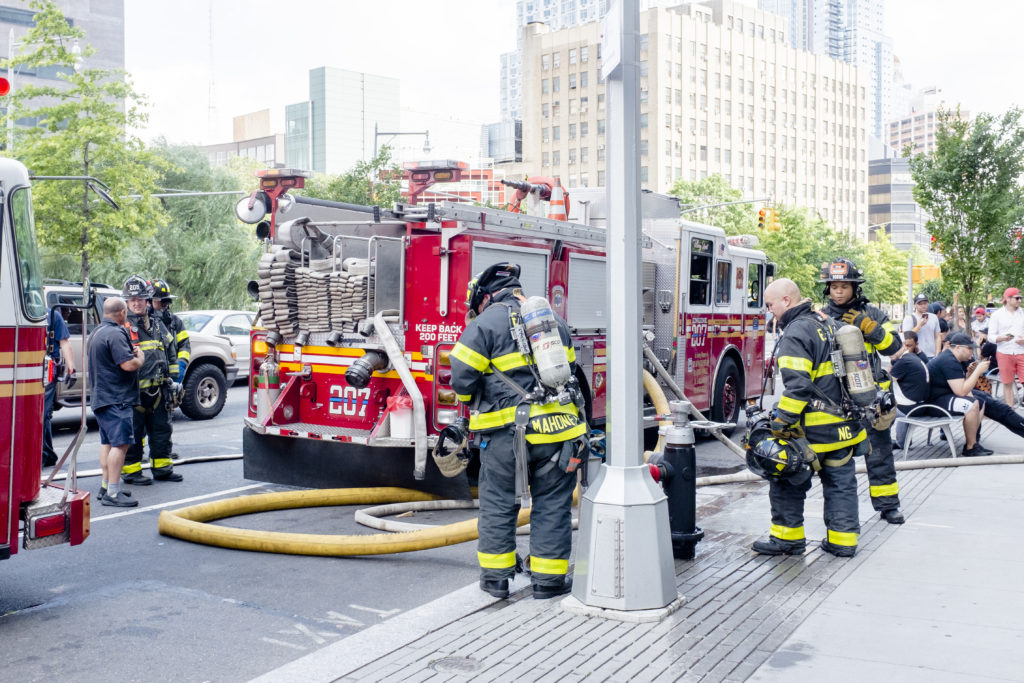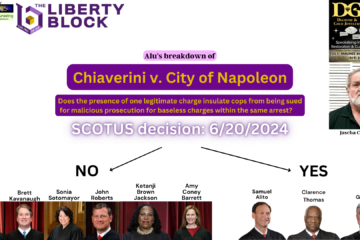As a society, we regularly enjoy a variety of products and services from burgers, to police, to smart phones, to health care. Most services are provided by private companies that we voluntarily interact with. Other services, like the DMV and garbage collection in some cities are provided by local governments. In these scenarios, people have no choice whether to pay for the services (NYC taxpayers have no choice whether to fund the 1.6 billion dollars city garbage collection agency), and the industry has zero competition (monopoly). It seems as though every time that we see the government provide the same service as a non-government entity does, (VA hospitals, transportation) the difference on quality/customer satisfaction/effectiveness is impossible to ignore.

Sadly, governments have successfully convinced large amounts of voters that some services are best provided by government, and they’ve demonized those who question the government’s effectiveness of providing the service. They also condemn anyone who ponders whether government has that authority.
As is the case with practically every service (yes, even ‘essential’ services), the free market provides the best options for the people – because when it doesn’t, the free market weeds out the poor providers and replaces them with better providers of any given service. When the government provides a service, the laws of the market do not apply to them because they can’t be fired or lose customers or contracts, so they do not have to provide a cost effective service or even a decent service at all. If the DMV or the VA has a poor reputation for providing poor services, do they lose any funding? The answer is obviously ‘No’.
The FDNY controlling the 911 ambulance response in NYC is no different. They do a lackluster job and they force us to fund it. It’s important to keep in mind that private ambulances only ask you for payment if they treat and transport you, whereas government ambulances force you to fund them with your tax dollars, and to pay again when they transport you to a hospital. After being transported by an ambulance in NYC – FDNY or private – you will receive a bill of around $500 (plus mileage/meds/level of care). So we essentially pay for FDNY EMS twice. And we have no choice in the matter.
I’ve compiled a list of 5 crucial reasons why the FDNY has no business having a monopoly on 911 EMS in NYC:
1) Unions make FDNY employees unaccountable: All 3,800 EMT’s and paramedics employed by FDNY belong to local union 2507, which makes them practically unfireable and gives them benefits and a pension, all paid for by people like you and me.
Employees of the FDNY knows that they are among the most difficult employees on earth to fire. If they do something egregious that causes harm to a patient, the worst possible scenario is generally (like savagely beating a firefighter from a rival station or something)a suspension. In FDNY, a suspension consists of clocking in and hanging out in the station, playing Xbox, and going on coffee runs. (That’s a direct quote from a FDNY EMT) They are still paid in full while on suspension. It is incredibly rare for an FDNY employee to be fired. They don’t have any financial consequences from their mistakes, but the taxpayers sure do. Imagine that a paramedic making $25/hour is suspended for possibly giving the wrong medication to a critical patient and killing her. While he is suspended for 3 weeks and still being paid, another paramedic has to fill in for him. Since every FDNY employee works 40 hours a week, this will most likely require overtime pay. So, for every hour that the suspended medic is off of his ambulance, taxpayers are paying around $36/hour extra. Imagine that FDNY employees spend a combined few thousand hours on suspension each year. Why do us hard working New Yorkers have to pay millions of dollars for careless EMTs and paramedics to sit at home after making mistakes?
Add to this the cost of the FDNY staff to ‘investigate’ the incident. This is at least a few thousands dollars more for each suspension. (I have not been able to find any sort of report on FDNY suspension costs)
In Private EMS: In the private companies, if you are ever AWOL or miss a few calls from dispatch because you’re sleeping on the job, you can expect to be looking for a new job by sundown. If you administer a wrong medication, you will likely be suspended WITHOUT PAY or fired. In the privates, if you are out on suspension, you are not being paid. And the people who investigate your incident are paid by the company, not taxpayers. This gives the private companies even more incentive to limit mistakes.
2) Compassion: Since there is no accountability in government agencies, these EMT’s and paramedics have no incentive to be compassionate or diligent in their work, and they have no deterrent from treating patients, patients’ families, and other healthcare providers rudely and unprofessionally. Much like the nasty DMV employees, government nurses, paramedics, and EMT’s often treat patients with extreme apathy and incompetence. But they are untouchable. Do you want an untouchable union employee treating your loved ones when they are sick, injured, or scared? Why are we paying $277,000,000 a year for this kind of treatment when we could pay zero taxes towards EMS and receive much better treatment??
In Private EMS: Every private entity is affected negatively by negative public image. When people perceive a company as heartless (like the recent United Airlines incident) they lose contracts, sales, and customers. For these reasons, private companies place great importance on clinical excellence as well as patient satisfaction and maintaining a good reputation. The EMTs and paramedics of the largest health system in NY all spend weeks in orientation learning customer service and practicing compassion. They are instructed to contact a supervisor after encountering any patient that they feel may not have had a positive experience. The supervisor and the crew then try to figure out what went wrong if anything, and what they can do to prevent the issue from occurring again. This company has actually extended the Press-Ganey survey to include patients who are transported by their ambulance crews. This makes their EMT’s and paramedics even more accountable. Can you guess what the result is? Their employees treat people wonderfully. Additionally, private companies can fire employees who treat patients with terrible manners and no empathy.
3) Lawsuits, accidents, and unforeseen expenditures are paid for by taxpayers.
Another very important reason that FDNY should not operate EMS are the lawsuits that are billed to the NYC taxpayers. (It is difficult to find the numbers, perhaps because the FDNY does not want taxpayers to know how much money we pay for their payouts of lawsuits.)
In addition to paying settlements to patients for inevitable and reckless clinical errors, the FDNY must also pay damages for accidents. FDNY ambulances often crash into property, other vehicles, pedestrians, and even other FDNY vehicles. All of the money paid to patients, families, motorists, pedestrians, and property owners is paid for by the citizens of NYC who work hard and pay their taxes. Why do we stand for this?
Private EMS: When a private ambulance is involved in a collision, the private company pays for all of the damages to the people involved, the vehicles, and the patient. Taxpayers do not pay a nickel towards damages caused by private EMS vehicles.
4) Where does their money go? Much like other big government agencies with budgets in the billions, the FDNY has all sorts of corruption and wasteful spending. In 2016, the NY Post reported on a story revealing that the FDNY had paid a ‘diversity monitor’ 10 million dollars over 4 years. They also plan to increase their budget by 5 million dollars in 2017 and 10 million in 2018 in order to add another 50 ambulance tours. If they just allowed private companies to provide those ambulances and staff them, they would not have to raise our taxes, and once again, we would actually receive better patient care.
Private EMS: Private companies spend every penny wisely, because it comes out of their account. And even if they don’t spend money wisely, who cares? It is their money, not ours!
5) Grants make it even more unfair: If you now understand that it’s unfair and downright despicable that NYC taxpayers who struggle to make ends meet are forced to pay billions of dollars for a harmful and unnecessary service, I have more bad news for you: It isn’t just us. Every person in the US who pays taxes is forced to contribute to FDNY’s ridiculous spending. This extortion is accomplished by using FEMA and similar federal and state agencies to ‘grant’ money to the FDNY. In 2016, taxpayers across the country contributed $148 million to the FDNY. So, if you live in Wyoming, you are paying for the FDNY to employ paramedics that they don’t even have to employ!
***Bonus: What are grants? City and state governments love the convoluted scheme of ‘grants’ because it allows them to pool together money on a larger scale, and then redistributes it back to smaller areas, which throws off any citizen who may try to compare how much he pays in taxes vs. his city’s budget. This can be explained by NYC spending around $86 billion this year, which is much less than we pay in taxes. Much of NYC’s budget comes from ‘state grants’, and some comes from ‘federal grants’, meaning that people from around the US pay for Deblasio’s popularity stunts. Federal funds from FEMA recently were directed to the FDNY to rebuild a firehouse. So, if you live anywhere in the US, the FDNY should be thanking you for contributing to their new station.
Conclusion: Around 50% of ambulances in the 911 system of NYC are run by private companies. Private hospitals and private ambulance companies pay the FDNY thousands of dollars a year to operate one of the predetermined ambulance units in the system. All ambulances in the 911 system are dispatched by the FDNY and must obey FDNY EMS lieutenants when given administrative orders on scene and must obey the FDNY doctors for medical orders. Private companies feel that is is worthwhile to participate in the 911 system because the more ambulances they operate, the more money they can make from patients & their insurances, and the more publicity they can gain for their companies. If the free market would fill the void so readily, why are we still paying for subpar EMS with our taxes and then again when being transported by an ambulance?


